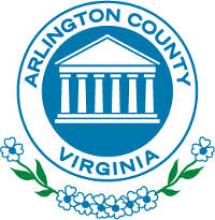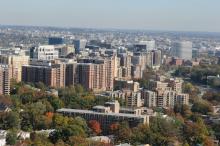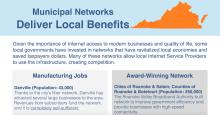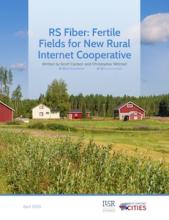Arlington Dark Fiber Network at Crossroads, ARLnow Reports
When Arlington County, Virginia, decided to deploy dark fiber and make it available to businesses in 2015, officials dreamed of economic development, tech innovation, and competition in the broadband market. Four years and approximately $4 million later, the fiber network has fallen short of those lofty goals and instead lies in the ground mostly unused.
A recent investigation by the local news outlet ARLnow explores the reasons why Arlington’s network has failed to live up to expectations; ARLnow’s article takes a nuanced look into the project’s specific shortcomings. In particular, the article points to certain choices that Arlington made when designing the network and lease contract, presenting an opportunity to learn from the county’s mistakes and offering hope for the network’s future.
What Went Wrong
Arlington conceived of the 10-mile dark fiber network as an extension of the county’s existing network, ConnectArlington, which already serves schools, traffic lights, and other government buildings. County officials believed the dark fiber expansion, which businesses and Internet service providers (ISPs) could lease access to, would promote economic growth. “At the time,” ARLnow explains, “county leaders championed the construction of the ‘dark fiber’ network as a transformative step for Arlington.” One former official even described the dark fiber as a “competitive advantage over other jurisdictions.”
Unfortunately, county leaders’ “build it and they will come” attitude has not bred success, and the network is drastically underutilized at present. This failure was not inevitable, the article says, but rather “Arlington officials made a series of decisions in designing the program that scared off any businesses interested in leasing the fiber.” ARLnow quotes a member of the Broadband Advisory Committee assembled by the Arlington County Manager:






